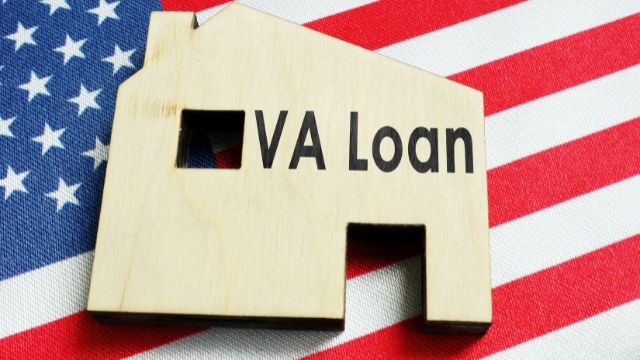It is pretty much possible that you recently stumbled upon VA Home Loans or just the VA Loans, and it has got you thinking about whether or not you should opt for it. Right? Well, if you are in this situation where you can’t decide, then you’ve got to read today’s post until the very end because that’s why we are onto today. Here we will be talking about what VA Home Loans are, what benefits can you possibly enjoy, and what things to watch out for. That’s pretty much the whole theme for today’s post, so yeah, without further ado, let’s get straight to it, shall we?
What Exactly Are VA Home Loans?
VA loans are this exclusive and advantageous financial choice, reserved solely for the heroes of the U.S., the military veterans, those serving on active duty, members of the National Guard, reservists, and even certain spouses who’ve stood strong. The backbone of these loans? The U.S. Department of Veterans Affairs. This federal agency is all about supporting the needs and dreams of veterans and their families. Now, let’s talk about the core aim of VA loans. It’s simple yet impactful. They’re here to make the journey of owning a home less of a financial mountain to climb for those who’ve donned the uniform. And boy, do they bring advantages to the table!

Pros of VA Home Loan
Now, it would be better if we start off with the pros aka the positive side of things about VA Home Loans, and why you should strongly consider this type of home loan. Ready? Here we go.
1. Skip the Initial Cash Layout
Topping the list of VA loans’ perks is the no down payment necessity. Can you imagine getting your own house without the hefty initial cash burden that’s usually synonymous with standard mortgages? Now, that’s a game-changer in stepping into homeownership.
2. Say Goodbye to PMI
Here’s another standout aspect of VA loans, no need for Private Mortgage Insurance (PMI), a common requisite in conventional loans. This is especially notable when you’ve not made any down payment. What does this exactly mean for you? A tidy reduction in your monthly mortgage expenses, which can really add up.
3. Credit Score Flexibility
Talking about the perks of VA loans, let’s not gloss over their relaxed credit score stipulations. This point is particularly crucial if your credit history is less than stellar, yet your financial standing is solid. It’s an opportunity to bypass the often stringent credit requirements seen in other loan types.
4. Lower Interest Rates
Now, when we talk about VA loans, what stands out the most is their notably lower interest rates, especially when you stack them up against conventional loans. And what does this mean for you? Well, it translates to significantly more manageable monthly payments and, most importantly, a considerable reduction in the total interest you end up paying over the loan’s lifespan.
5. Assumable Loans
Here’s something interesting about VA loans, they can be assumed by potential buyers down the line. Let’s say you’re in a market where the interest rates are on an upward trajectory. This assumable feature of VA loans can become a massive advantage, making your property far more appealing when you decide it’s time to move on and sell.
6. Lower Closing Costs
One of the less talked about, yet highly beneficial aspects of VA loans, is the way they handle closing costs. The VA sets a cap on certain fees that lenders are allowed to charge. What’s the bottom line here though? This often leads to lower closing costs with VA loans as compared to the ones you’d find with conventional loans.
7. Zero Charges for Early Payment
You see, opting for a VA loan comes with the incredible advantage of no prepayment penalties. This means if you decide to settle your mortgage before the due time, you won’t face any extra charges. It’s a flexible choice that could also lead to substantial savings on interest down the line.
8. Diverse Refinancing Opportunities
VA loans stand out with their refinancing alternatives, including the cash-out refinance and Interest Rate Reduction Refinance Loan (IRRRL). These options add a layer of flexibility, adapting to various financial scenarios and potentially leading to notable savings.
9. Considerate Policies for Bankruptcy and Foreclosure Cases
Experiencing bankruptcy or foreclosure isn’t necessarily a deal-breaker with VA loans. Remarkably, you might still be eligible for one, often after a comparatively shorter waiting period than other loan types. This aspect of VA loans offers a glimpse of hope for those rebounding from financial setbacks.
Cons of VA Home Loan
It’s not like there are just the shiny and positive aspects to this whole VA Home Loan thing. There are few considerations that you must think about before you sign up or apply for such a loan. You see, everyone respects veterans, and we don’t want you to get in trouble with any kind of loan, so make sure you read through this section before making any decision.
1. VA Funding Fee
When it comes to VA loans, a majority of borrowers are obliged to pay what’s known as the VA Funding Fee. This is essentially a one-time charge, established to support the program’s funding. Interestingly, this fee can be included in the overall loan, but here’s the catch, it bumps up the total cost of the loan. But yeah, it’s noteworthy that certain individuals, particularly those with service-connected disabilities among other factors, might be exempt from this fee.
2. Property Restrictions
Getting to know more about VA loans, you’ll find they’re quite stringent when it comes to the types of properties eligible. This aspect could potentially narrow down your housing choices. It’s crucial to understand that these loans are not designed for investment purposes or for that dream vacation home of yours.
3. Primary Residence Requirement
Here’s another interesting point about VA loans, they necessitate that the property in question be your primary residence. This isn’t just a mere formality though, there are specific occupancy rules that one must adhere to. This requirement underscores the essence of VA loans, aligning with their intended purpose.
4. Real Estate Agent Familiarity
It’s a bit of a challenge, not every real estate agent has a grasp on the VA loan process. This lack of knowledge can throw a wrench in your home buying plans. That’s why it’s super important to team up with an agent who knows the ins and outs of VA loans.
5. Seller’s Market Challenges
When the housing market is competitive, it’s common to see sellers turn their noses up at offers with VA financing. This often stems from misunderstandings about what the program entails.
6. Funding Fee Increases for Subsequent Uses
Here’s something to keep in mind: if you’re tapping into your VA loan benefits more than once, the funding fee gets a bump each time you use it again. This means the overall cost of your loan goes up a notch with each subsequent use.
Conclusion
That’s pretty much it for today. Like, with this much information about the VA Home Loans at your disposal, you are really in a position to make the final call which likely will not make you regret your decision down the line.

Meet Suhas Harshe, a financial advisor committed to assisting people and businesses in confidently understanding and managing the complexities of the financial world. Suhas has shared his knowledge on various topics like business, investment strategies, optimizing taxes, and promoting financial well-being through articles in InvestmentDose.com


